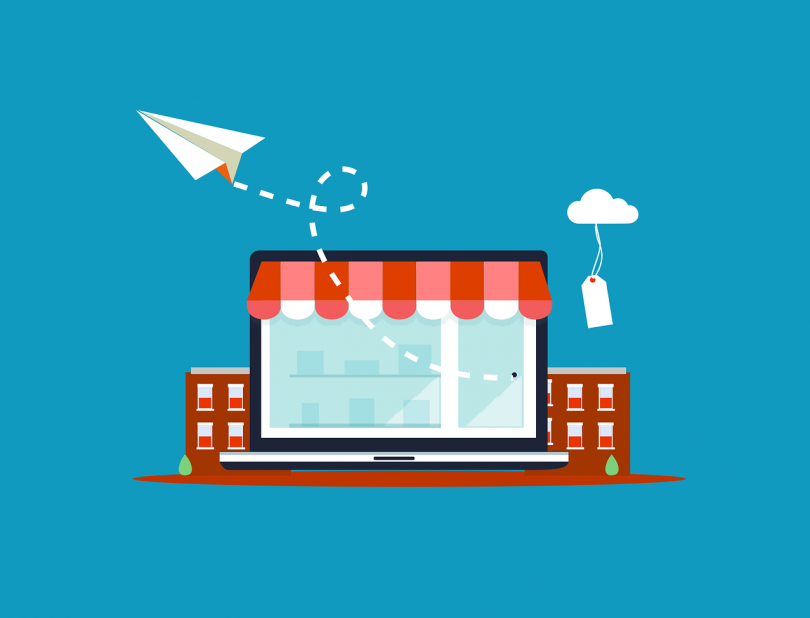Transitioning from a bricks and mortar retail business to an online, work from home environment is now a reality for many small business owners. We’re here to help you make that transition easy with some useful resources.
Setting up
Dedicate a space within your home to run your retail business where you can keep your stock safe and have limited distractions. Some things to keep in mind when setting up shop:
- Check your internet. You may need to increase your speed and download limits due to the increased activity.
- Make sure your computers are secure and updated with security updates. Use a VPN and ensure all anti-virus software is current.
- Keep an inventory of all your stock with an efficient system in place to manage the levels and time frames for shipments.
- Change your mailing address.
- Communicate the changes to your customers and how they can now purchase through your online store. Social media is a great tool for getting the word out there.
For more tips and tricks check out How to work from home like a pro.
What to sell?
Assess what products you’re going to be selling through your online store. Some products you have previously sold may not be practical due to logistics or availability. Narrow down your range to your best sellers and make these your priority.
Keep an eye on your competition too. Monitor what they are charging for their products and delivery costs.
Setting up your online shop
Take the time to make sure your website is user-friendly, especially if this is the first time you have started taking online-orders. Test run the sales process by getting family and friends to visit your page to trial it and find out what works and what needs improvement.
Once your customers have selected their products and are ready to purchase, you need to have an efficient ecommerce platform in place. These are a few to check out:
Depending on the types of products you sell, there is also the online trading platform to consider. These include sites like Etsy, eBay and Amazon, where you can sell your wares through their store.
Sorting out the shipping
A good shipping experience is crucial to gaining customer satisfaction. To ensure your goods are getting where they need to go, be sure to run your process against this checklist.
- Storage space – How much stock will you have on hand at one time? Will it just sit in your garage or living room? Analyse your supply and demand and ensure you’ve got the room to handle the flow of goods in and out. Also consider your efficiency with labelling and movement of goods from packing to shipping.
- Pick the right carrier – Weigh up your delivery requirements. How many options will you offer customers? Will you ship internationally? List the criteria of what you will and won’t do and pick a reputable carrier that can deliver.
- Charges – Figure out what you’ll need to charge in order to turn a profit. You’ll also need to decide whether you’ll offer flat rates, free shipping or adjustable rates. Most eCommerce platforms have plugins that can assist in working out a good rate for you and your customers but some experimentation is required to get to the sweet spot.
- Communicating to customers – It’s always reassuring to be kept up to date on when your package is arriving. Lay out an automated sequence that will keep your customers informed on the status of their package and how to track it.
- Be ready for returns – It’s going to happen, so you may as well make it easy. Ensure you’ve got a return channel open for unsatisfied customers or ordering mistakes. Include a return label in your packing process and make your policy clear and easy.
Protect Your Business
Just because your business is now based from home doesn’t mean it is free from potential risks. A common misconception is that a home contents insurance policy will provide cover for retail stock and business assets stored within the home. This is often not the case. It is important that you consider the PDS or policy wording and consider if a separate business insurance policy would cover these assets as part of your business operations and not your personal belongings.
We offer a range of of business insurances for online retail business, such as:
Public and Product Liability*
Public Liability insurance covers legal fees and compensation costs if a customer, member of the public, or a supplier sues you for injury or damage to their property as a result of your alleged negligent business activity.
If you sell products that you make, you may need to consider Product Liability insurance. Product Liability insurance protects your businesses against claims by third parties relating to property damage or personal injury caused by your products.
Contents and stock*
Provides coverage for loss of or damage to items such as business equipment, stock, plant and machinery, records and furniture belonging to you at the insured location. This is a separate policy to your personal home contents insurance.
Cyber Liability*
When you rely on your online systems and networks to run your business, protecting them against cyber-attacks and crime should be part of your business plan.
Cyber Liability insurance safeguards you from claims and supports your profitability in the event of a cyber breach or attack.
Portable Equipment*
If you are making product deliveries to customers, consider protecting your portable business assets like mobile phones, laptops and payment equipment such as EFTPOS machines.
Portable equipment or general property insurance can cover specified items such as tools, business equipment or electronic items. You can choose between comprehensive cover which will include accidental damage cover or insured events cover for events such as fire, theft by forcible entry, explosion or storm.
At BizCover we believe arranging your business insurance should be easy and jargon-free. Get covered in minutes by giving us a call or jumping online and select from multiple quotes from some of Australia’s leading insurers.
*As with any insurance, cover is subject to the terms, conditions and exclusions contained in your policy document. The information contained on this webpage is general only and should not be relied upon as advice.
Government pages
These government pages are designed to help small businesses owners access a wealth of resources for different areas of the business.
- Registering an ABN: https://www.business.gov.au/Registrations/Register-for-an-Australian-business-number-ABN
- Australian Taxation Office: https://www.ato.gov.au/
- COVID-19 Information and support for small businesses: https://business.gov.au/risk-management/emergency-management/coronavirus-information-and-support-for-business
- Grants and programs: https://www.business.gov.au/Grants-and-Programs
- My Business Health portal https://www.asbfeo.gov.au/my-business-health/home
Online Courses
Whether you want to learn something new or upskill, there is an online course out there for pretty much anything. These are some useful courses that can assist with running an online retail business.
- TAFE NSW- Business Administration courses: https://www.tafensw.edu.au/digital/business-administration
- SkillShare: Building an Etsy shop that sells: https://www.skillshare.com/classes/Building-an-Etsy-Shop-that-Sells-Strategies-for-E-Commerce-Success/1429447927?via=homepage
- EdX, retail related courses: https://www.edx.org/course?search_query=retail
- Practical steps to starting an online retail business, Udemy: https://www.udemy.com/course/start-an-online-retail-business-in-7-days/
What other online retail businesses are doing
Need some inspiration? Take a look at some of the most innovative online retail businesses that are getting creative with their platforms and customers.
Virtual interactions-The Oak Barrel is a specialty bottle shop in Sydney that regularly hosts wine and whisky tastings at their store. They have had to adapt to the new government regulations and now run these virtually by offering online tastings. Participants purchase a tasting pack that is sent out prior to the scheduled video conference of the tastings where they can sip and learn along. Find out more about their upcoming tastings here.
Size matters– Many online retailers especially in the fashion industry are adding a virtual service to assist their customers with selecting the right size. Australian fashion shoe retailer Wittner provides a ‘Find Your Fit’ service that assists customers to find the closest fit in three steps. Using a piece of paper, a pencil and a ruler, buyers watch a short instructional video that guides them on how to measure and get the right shoe size.







